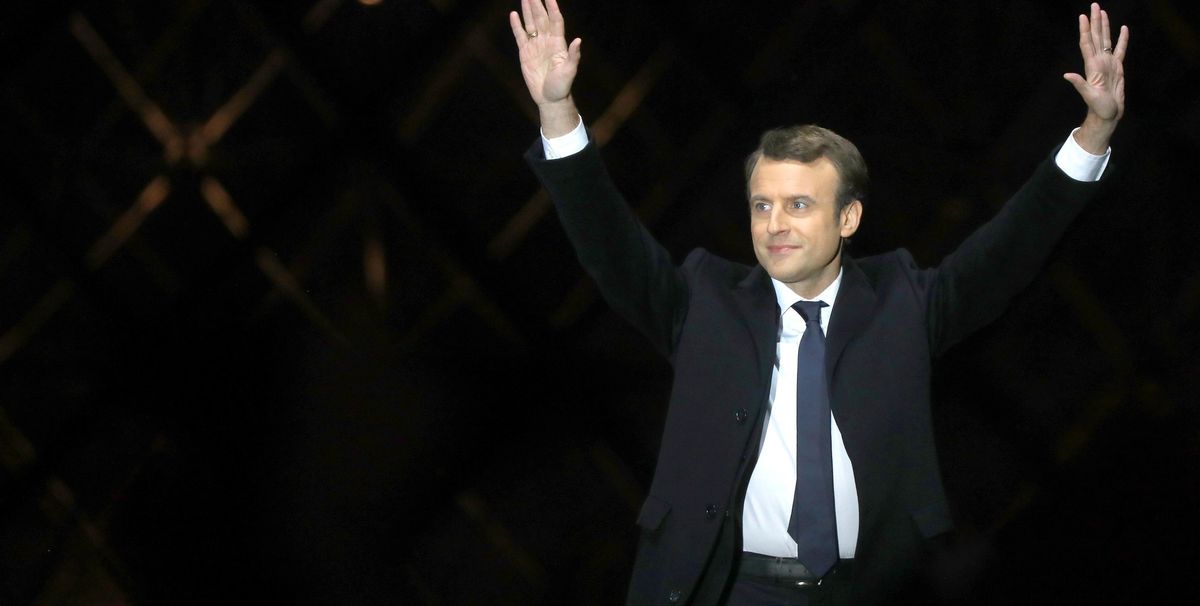France's cultural sector has breathed a sigh of relief after centrist Emmanuel Macron became elected president of France on Sunday, making the 39-year-old the youngest president in French history. He won with 66.1% of the vote, over 33.9% for far-right candidate Marine Le Pen, making him the eighth president of the Fifth Republic.
The decision of Macron to make his victory speech to his supporters in front of I.M. Pei's glass pyramid at the Louvre, a one-time royal palace turned museum, indicated a bridging of history and culture and entailed unprecedented security in the Louvre's grounds.
The pro-European founder of the En Marche! movement has promised to bring a youthful “revolution” to France. Macron's sensitivity to the arts is reflected by how he studied the piano for 10 years at the Conservatoire of Amiens and wrote three unpublished novels. However, with a record abstention of 25.4%, the mandate of the former Rothschild banker and economy minister is weak, and the far-left politician Jean-Luc Mélenchon and conservative François Baroin have said they would oppose him in June’s legislative elections.
“By speaking in front of the pyramid, our new president chose a just symbol, that of the marriage of history and culture today,” says the artist Jean-Michel Othoniel. “He understood that this is where we can make a difference on an international level. In his speech, he spoke with a lot of humility and I think that's the key to opening up towards the world. His youth is a strength to rejuvenate cultural institutions and above all young people who are seeking their singularity.”
Joel Andrianomearisoa also hopes that Macron will liven up the arts. “It's not a gust [...] but a new breeze that looks onto the world, with culture and the arts to brave the rain,” says the Madagascar-born, Paris-based artist. “This spectacle in front of the Louvre is certainly the first sign of this commitment, so let's be taken away by this beautiful dream [and] a new great journey.”
Others hope that Macron will be able to re-energise Europe in the face of Brexit. “I'm enthusiastic about the idea that a young president, open to the world, the evolution of customs, new technologies and culture, finally takes charge of our country,” says the gallerist Emmanuel Perrotin. “The next four months will be decisive. If he succeeds, we'll be able to see this leap materialise in a real change of Europe [...] in the absence of Britain [...]. If we manage to create a political, fiscal and defended Europe, it will be easy to develop a Cultural Europe.”
Observers are waiting to see who will be nominated as culture minister, after Macron announces the choice of his prime minister on 14 May 2017. The gallerist Delphine Guillaud, the co-owner of Backslash says: “Contemporary art, since the end of the Mitterrand era, has been the poor child of the culture ministry. I hope that will change but the times of the current crisis make me doubtful but Macron is still better than the Front National.”
As the art historian and curator Matthieu Poirier says: “The celebration in the Louvre is in any case symbolic: France and Europe draw on their history but are turned towards the future.”


